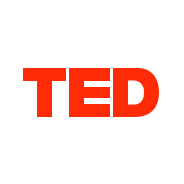What's it like to discover a galaxy -- and have it named after you? Astrophysicist and TED Fellow Burçin Mutlu-Pakdil lets us know in this quick talk about her team's surprising discovery of a mysterious new galaxy type.

Wissenschaft & TechnikTalk
TED Talks Science and Medicine Folgen
Some of the world's greatest scientists, doctors and medical researchers share their discoveries and visions onstage at the TED conference, TEDx events and partner events around the world. You can also download these and many other videos free on TED.com, with an interactive English transcript and subtitles in up to 80 languages. TED is a nonprofit devoted to Ideas Worth Spreading.
Folgen von TED Talks Science and Medicine
136 Folgen
-
Folge vom 28.08.2018A rare galaxy that's challenging our understanding of the universe | Burçin Mutlu-Pakdil
-
Folge vom 19.07.2018Where are all the aliens? | Stephen WebbThe universe is incredibly old, astoundingly vast and populated by trillions of planets -- so where are all the aliens? Astronomer Stephen Webb has an explanation: we're alone in the universe. In a mind-expanding talk, he spells out the remarkable barriers a planet would need to clear in order to host an extraterrestrial civilization -- and makes a case for the beauty of our potential cosmic loneliness. "The silence of the universe is shouting, 'We're the creatures who got lucky,'" Webb says.
-
Folge vom 12.07.2018A new way to monitor vital signs (that can see through walls) | Dina KatabiAt MIT, Dina Katabi and her team are working on a bold new way to monitor patients' vital signs in a hospital (or even at home), without wearables or bulky, beeping devices. Bonus: it can see through walls. In a mind-blowing talk and demo, Katabi previews a system that captures the reflections of signals like Wi-Fi as they bounce off people, creating a reliable record of vitals for healthcare workers and patients. And in a brief Q&A with TED curator Helen Walters, Katabi discusses safeguards being put in place to prevent people from using this tech to monitor somebody without their consent.
-
Folge vom 11.07.2018How to build synthetic DNA and send it across the internet | Dan GibsonBiologist Dan Gibson edits and programs DNA, just like coders program a computer. But his "code" creates life, giving scientists the power to convert digital information into biological material like proteins and vaccines. Now he's on to a new project: "biological transportation," which holds the promise of beaming new medicines across the globe over the internet. Learn more about how this technology could change the way we respond to disease outbreaks and enable us to download personalized prescriptions in our homes.
